Climbing out of the valley in which Wadi Musa and Petra are located, we encountered snow. Not a lot, but enough to whiten the landscape and slicken the road. Osama told us that Petra is closed for the day due to the bad weather. But descending from the mountain pass warmed the air and changed the precipitation to rain, which stopped by the time we reached Amman 3.5 hours later, about noon.
The landscape was flat and arid looking, although not as desert like as Egypt. There were occasional signs of vegetation and even farming. Being winter, we didn’t see any crops growing.
Osama talked about Bedouins, some of whom we saw offering camel and donkey rides at Petra yesterday. “Bedouin” is not a race, ethnicity or religion. Rather, it is a way of life: Someone who lives primarily in the desert, often in tents, and raises sheep and goats, moving from place to place to graze his or her animals. In the 1960s the vast majority of Jordanians were Bedouins. Today it’s 4% but some people live as part time Bedouins, living in the desert in spring and fall but moving to a town during the hot and cold months. Just think, most of our group would have grown up Bedouin if we’d been born in Jordan.
Osama talked about other aspects of life in modern Jordan. Here are a few points:
- Jordan is a kingdom, officially the Hashemite Kingdom of Jordan. The king has ultimate control; he appoints the prime minister and the members of the Senate. The House of Representatives is elected. Laws enacted by the legislature must be approved by the king who has veto power.
- Laws of the country, as in Egypt, are civil and religious. Civil law is non-denominational. Marriage, divorce and estate matters are subject to religious courts, either Islamic (95% of the population) or Christian (Greek Orthodox; 5%). All citizens must declare a religion so as to be able to participate in the courts.
- Education is free and compulsory from ages 5 (was 6 until this year) through 16. Public schools are adequate but private secondary schools are superior teaching, for instance, more than just Arabic and English. University education is of very high quality, better than private schools. Students follow one of two tracks: humanities or scientific depending on interest and aptitude. Vocational education is being emphasized recently because there are more jobs available in these fields than especially the humanities. University education is free for family members of military veterans.
- Health care is of high quality in Jordan. It is free for those six years of age and under and 60 or older. Military veterans and government employees have free health care. Others must rely on their employers for health care or purchase private policies.
- Jordan has little petroleum, unlike its neighbors to the east and south. It does have significant mineral reserves, particularly potash. Potash is exported to India where it is converted to fertilizer, which in turn is imported back to Jordan.
- Another source of income for Jordan is tourism, both the kind we’re doing right now and also medical tourism: people who come to Jordan from the Gulf states, the Middle East and elsewhere for high quality care.
- Jordan is the second poorest country in terms of fresh water sources. The Jordan River, which it shares with Israel, produces only a small amount of water. The aquifer beneath the southern desert areas has been tapped but that source will last for less than 100 years.
- The unemployment rate in Jordan is 19.5% and climbing, not counting refugee population. We’ll have to interrogate Osama more closely to find out how Jordan is able to deal with this problem.
- There is a sales tax that averages 16% and a graduated income tax starts at 5% and caps at 25,000 Jordanian Dollars.
- Jordan is host to a large number of refugees from neighboring countries, recently from especially Iraq (one million) and Syria (1.4 million). Jordan has received over two million Palestinian refugees since 1948, most of whom were granted citizenship. “We offer to share what little we have with those in need. Sending them home would mean their death or their conversion to ISIS,” said Osama. There are others who make up Jordanian population: guest workers from countries like Egypt (700,000) and the super wealthy.
- On our way into town we passed through new areas populated by multi-million-dollar mansions owned by wealthy Iraqis who moved here prior to the 2003 war that deposed Sadam Husain.
We arrived at the old town section that was once an upscale neighborhood but is now considerably diminished. As the wealthy moved out those remaining can’t afford the cost of housing nor can they abide by the overcrowding, lack of parking and noise.
We had lunch at a restaurant that serves traditional Jordanian food with heavy emphasis on humus and humus-based dishes, all dipped into with pita-style bread. The restaurant is open 7×24 and is always populated with “real” Jordanians, from the Prime Minister to common folk. During Ramadan they are open from sunset to sunrise to observe the fasting dictates of that religious observance.
We walked through spice and gold retail sections and through a fairly large fruit and vegetable market. And, yes, I bought two spice mixtures, one for meat and poultry and the other for rice. Note to self: get Osama to tell me what the devil I bought so I can brag with authority at our next dinner party. You’re all invited!
Finally, we were bused to the Citadel, the highest point in Amman. It has a reconstruction of Roman ruins (pieces taken from all over Jordan and installed here). There is also a nice museum with artifacts dating from the earliest human habitation through Bronze and Iron ages, the Roman, Islamic and Ottoman periods.
While dry, today has been cold and windy. The temperature barely reached 35, I’d judge, and we were all thoroughly chilled to the bone. We’re at the Grand Hyatt hotel, which is nice but very Western. The four of us had burgers in the bar. Our waiter, a young fellow, told us they served “the best beef burgers in the Middle East.” He is going to spend a semester in Cleveland studying law (something other than family law, I’d guess) starting in June.
Can you believe it? Our last day of touring (to Roman ruins said to equal the ‘wow’ factor of Petra) is tomorrow.
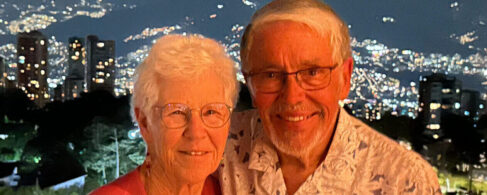


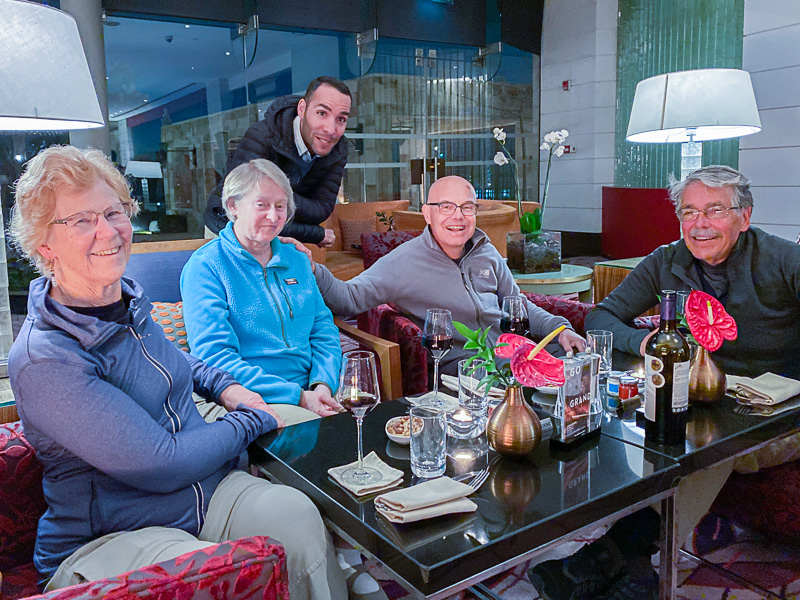
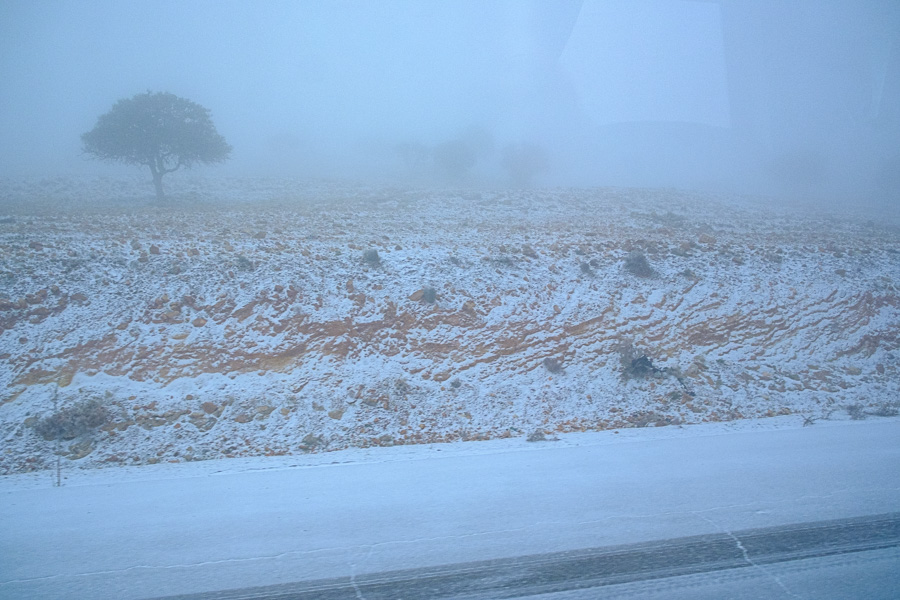
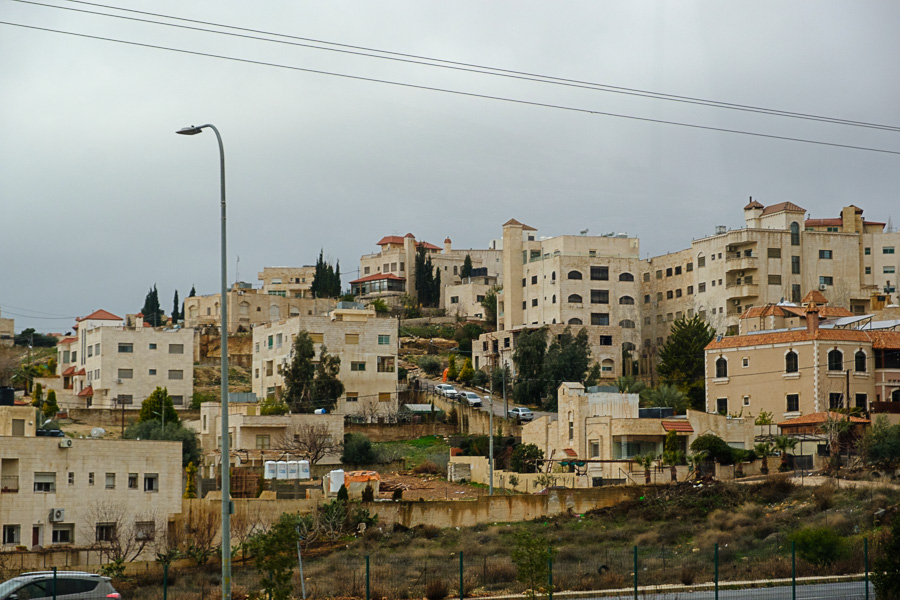

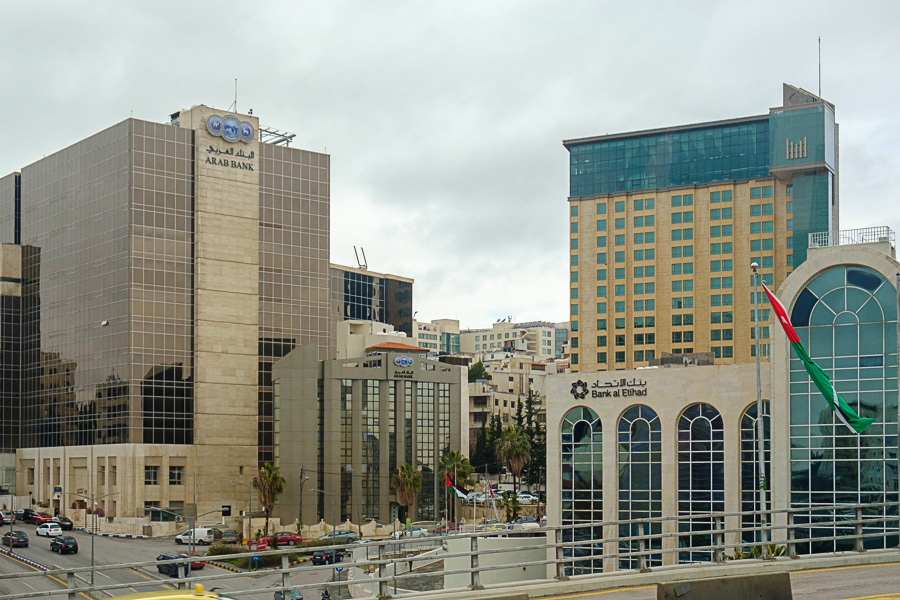
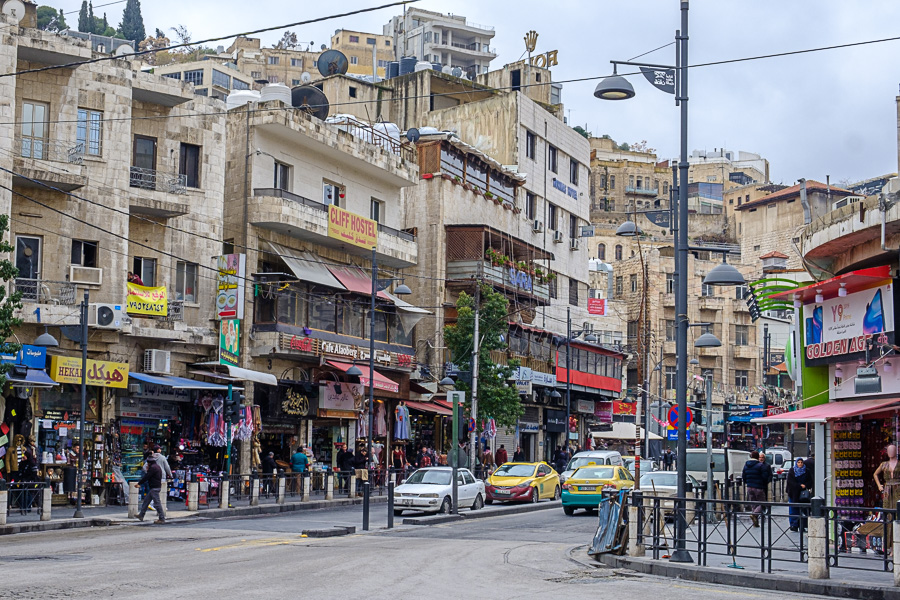
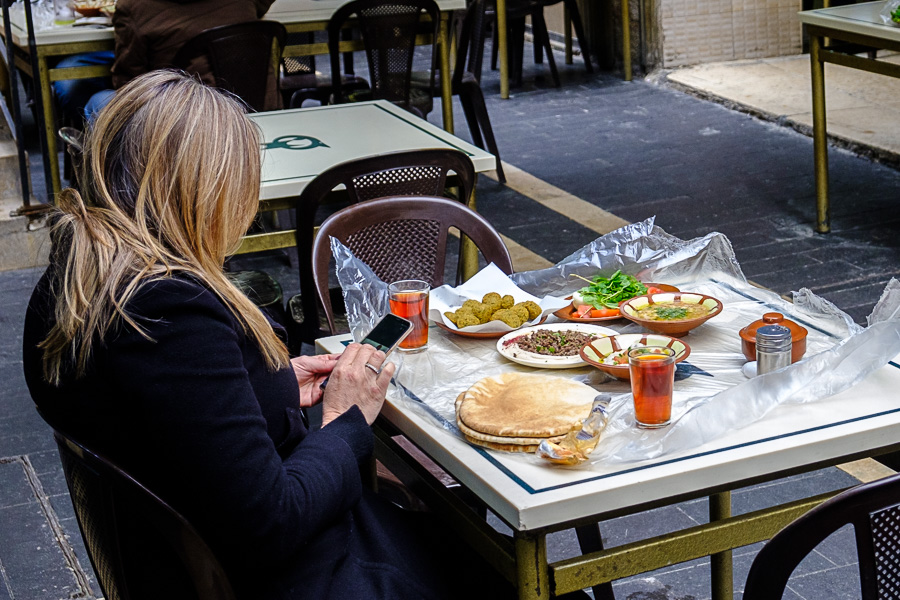

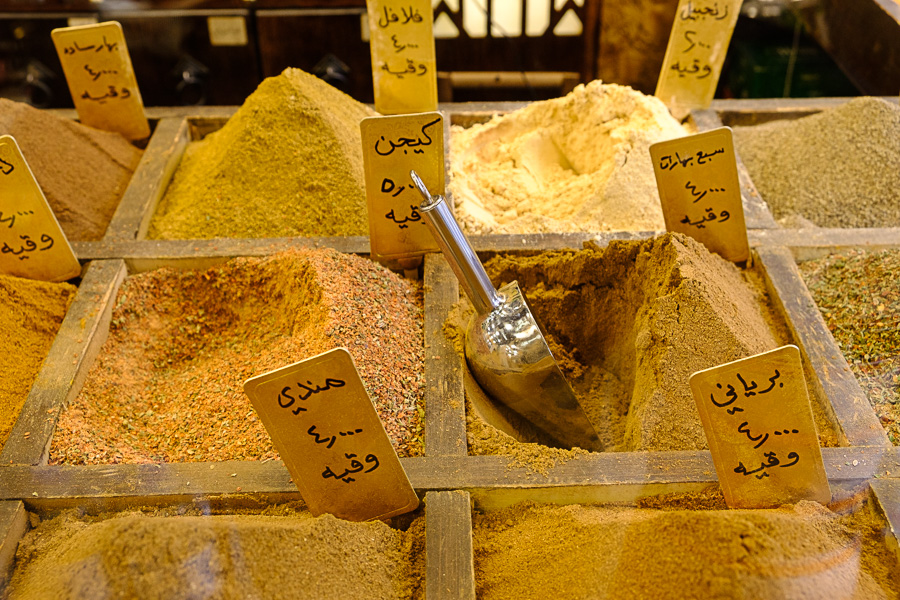
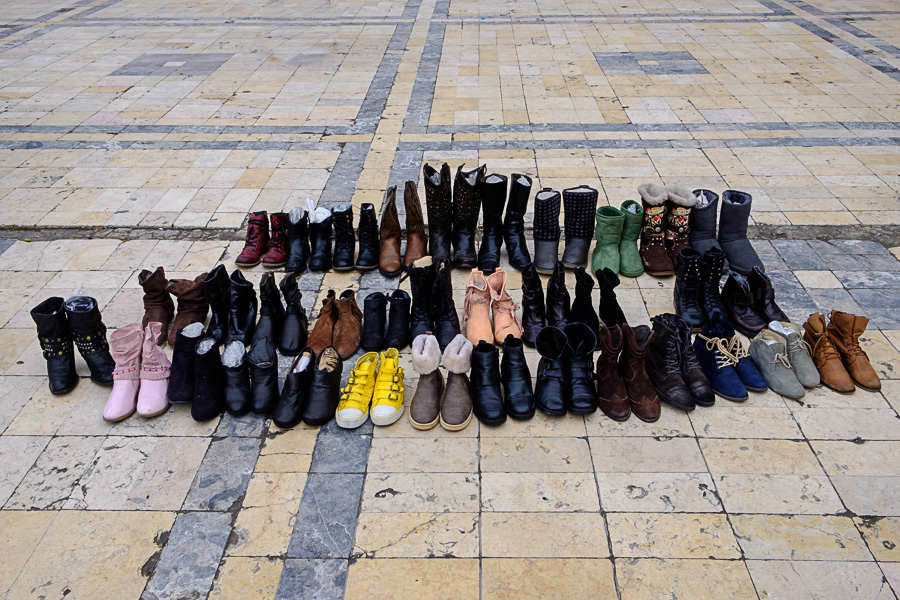
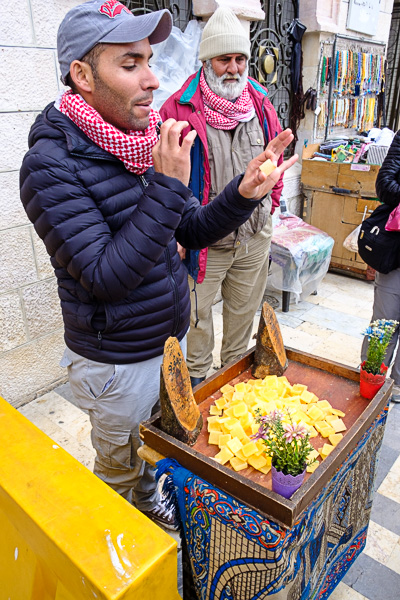
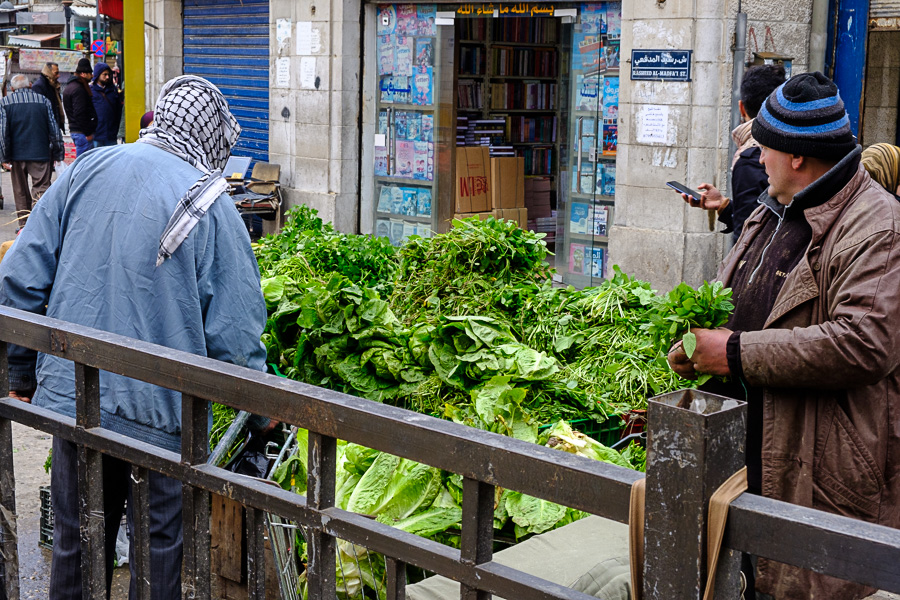

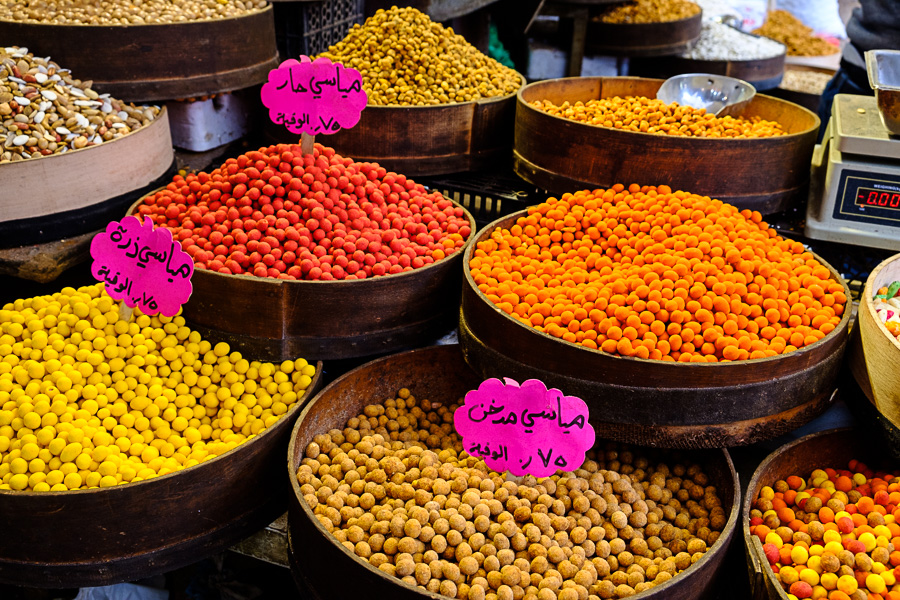
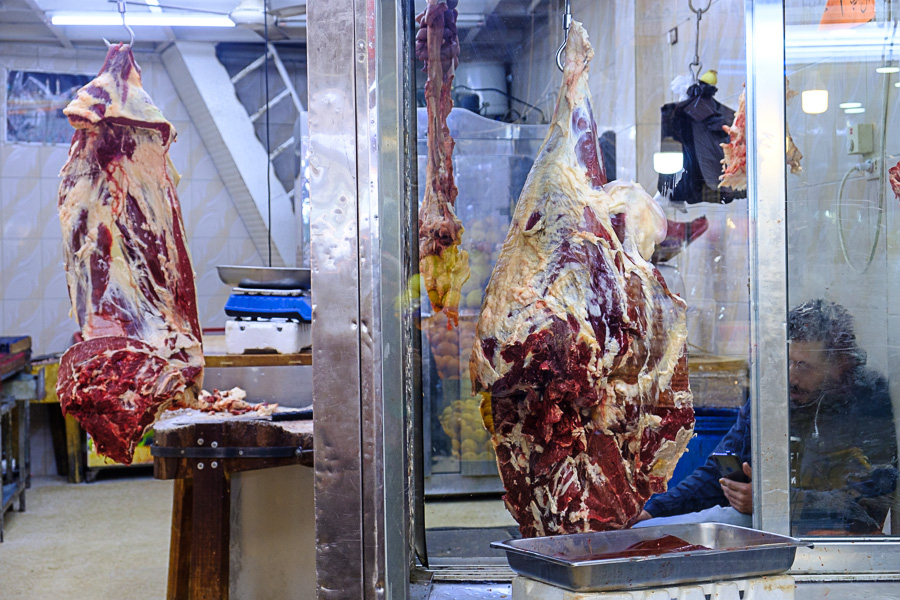
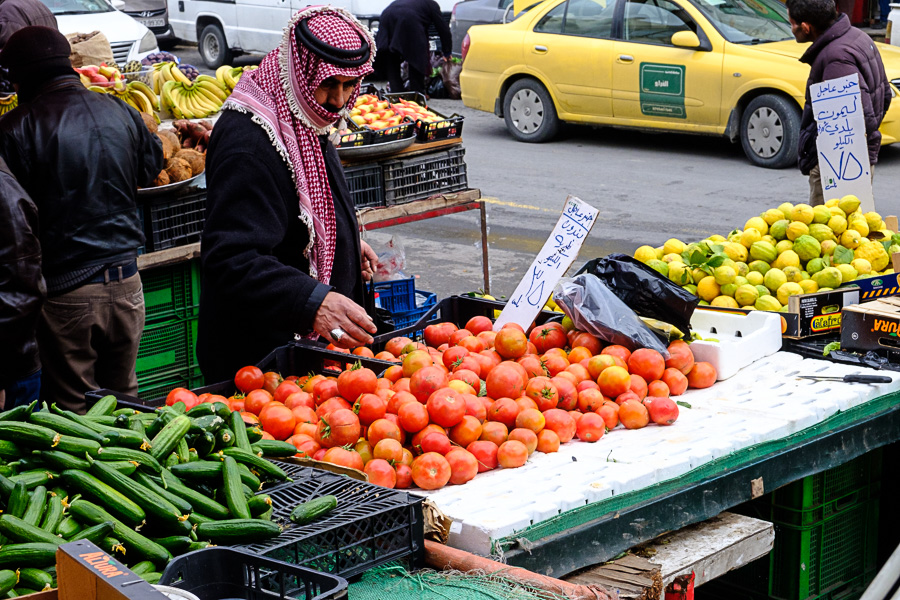

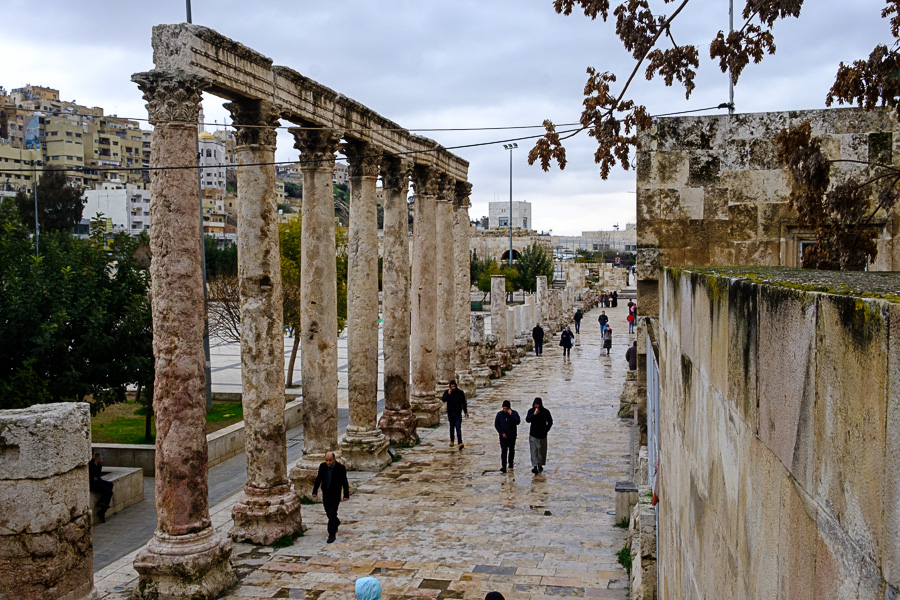
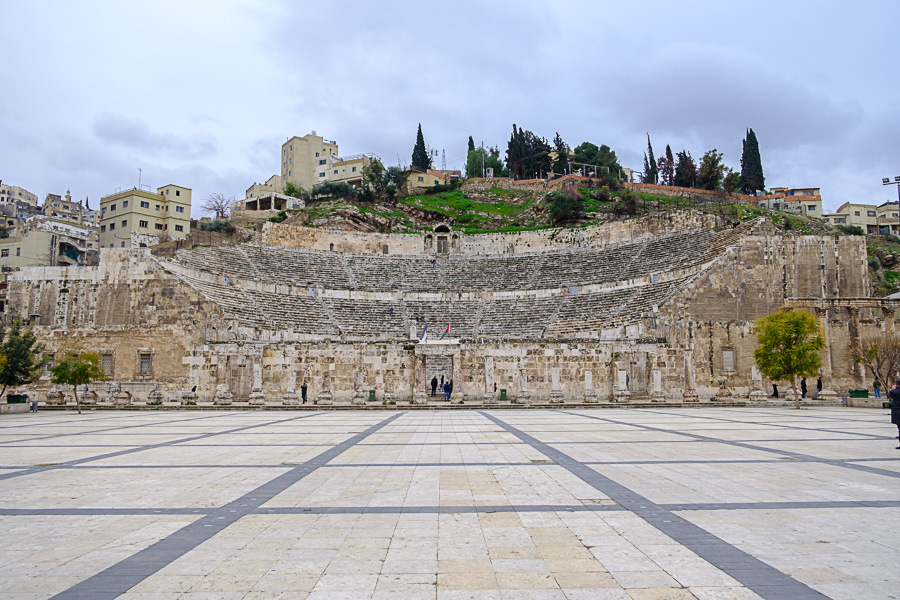
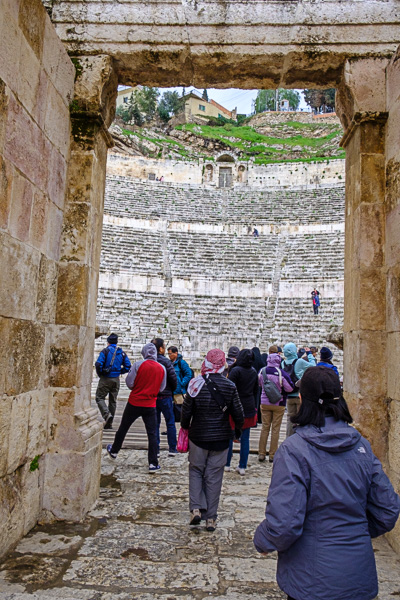
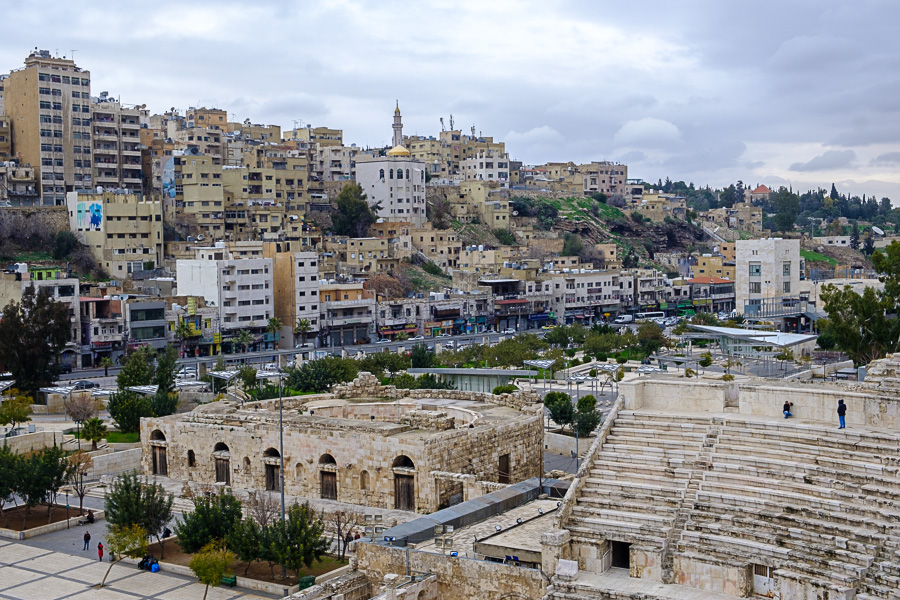

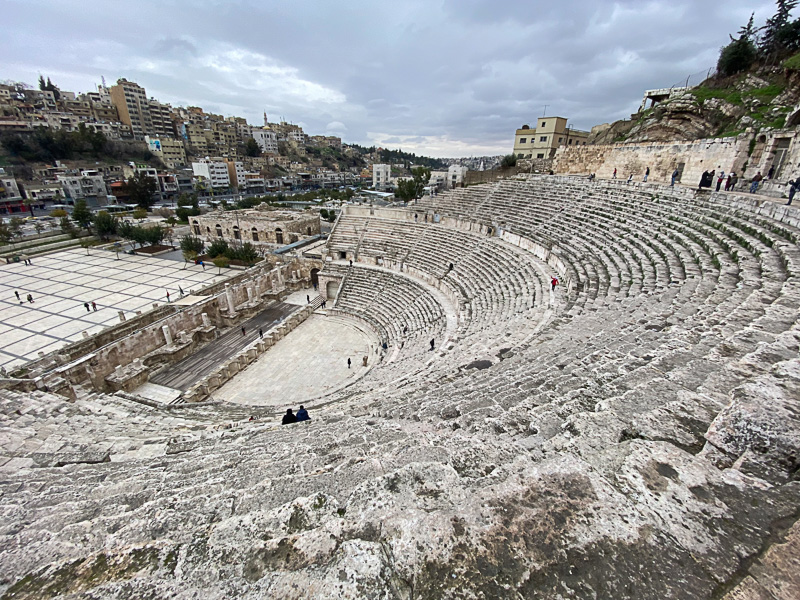
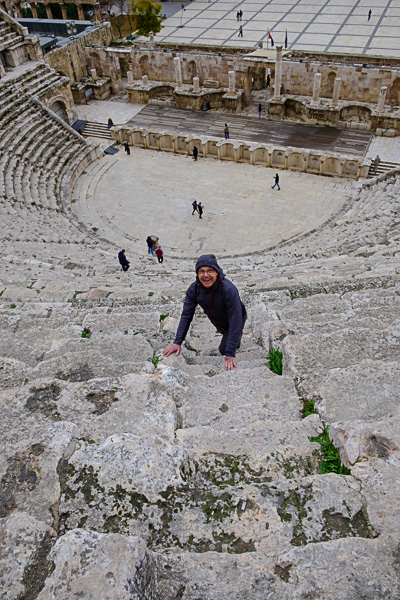
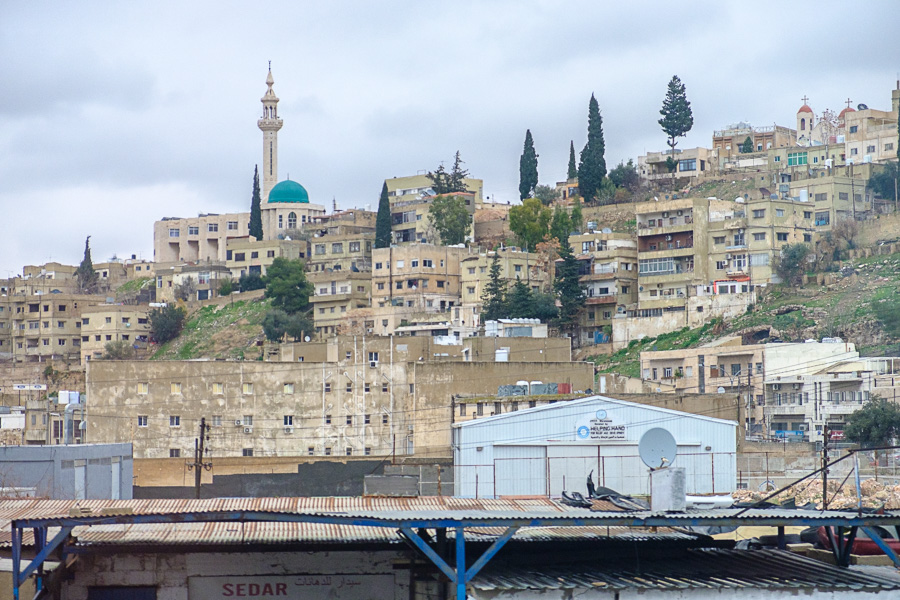
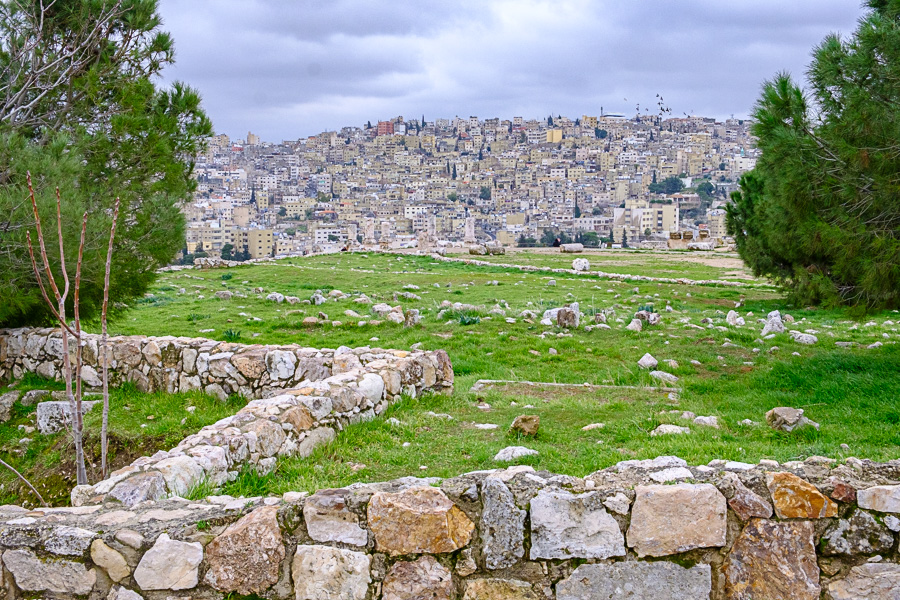
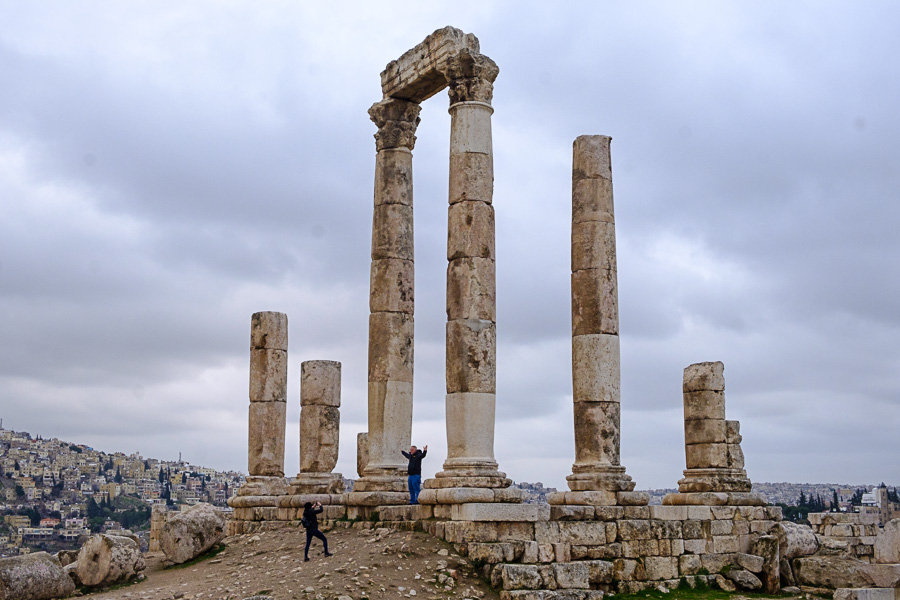
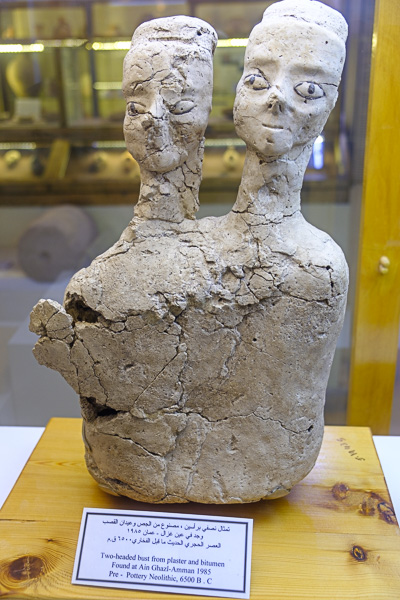
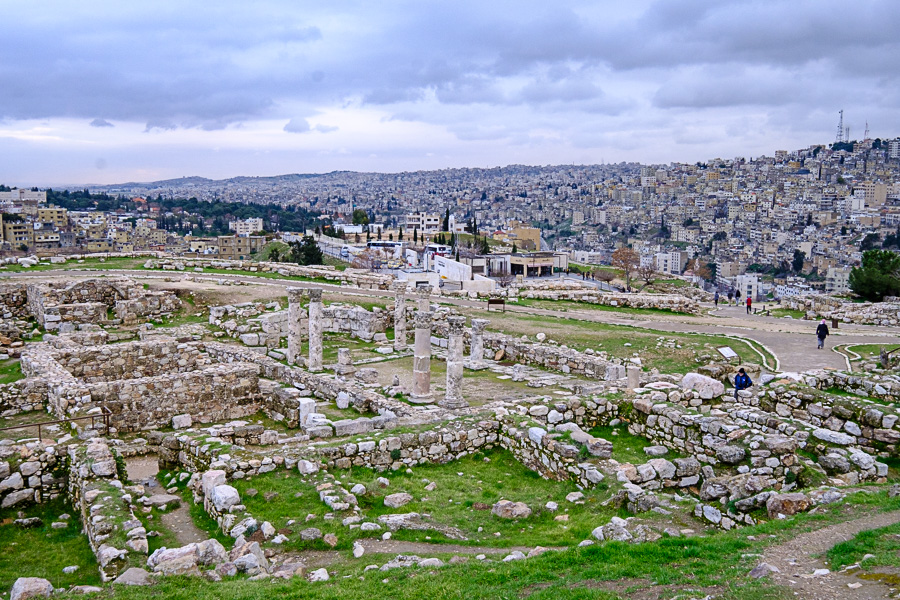
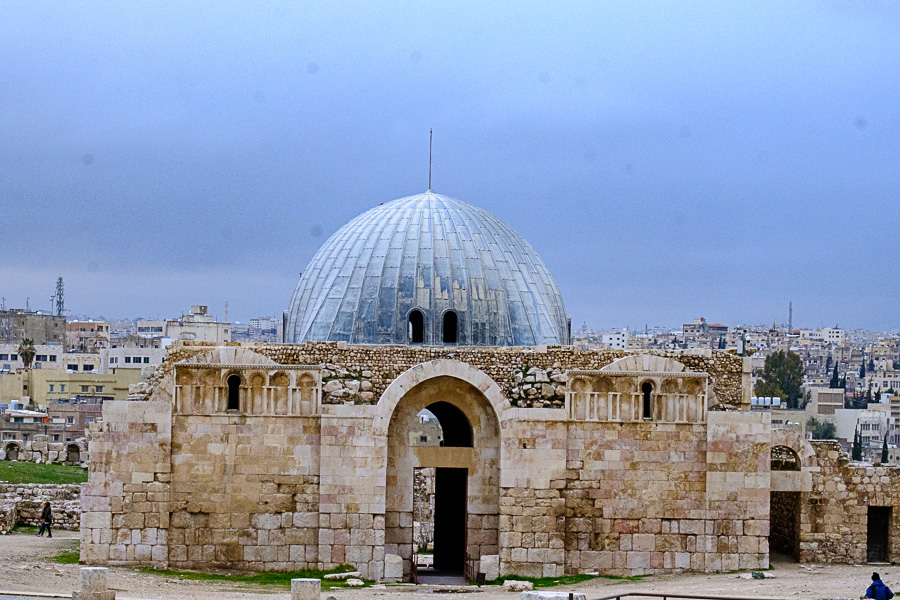
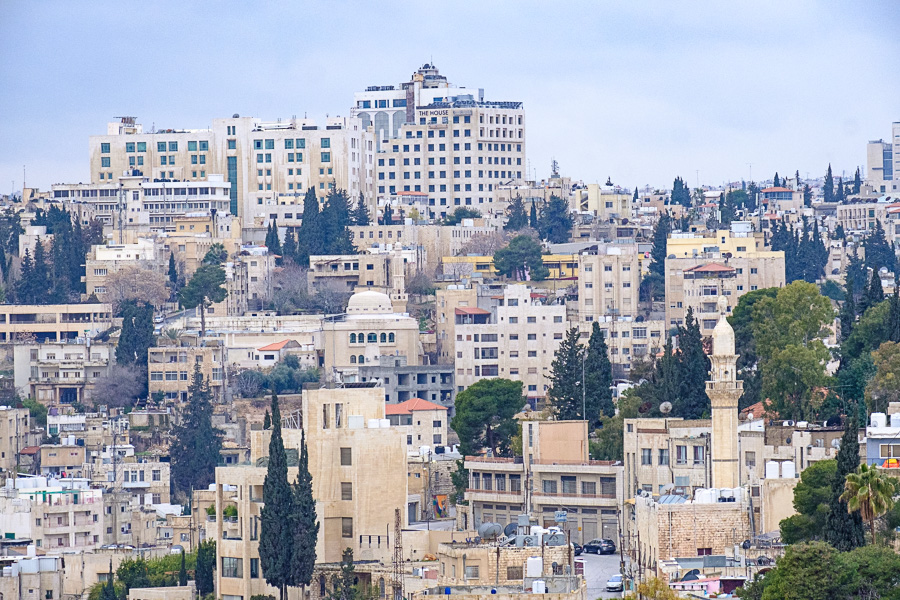
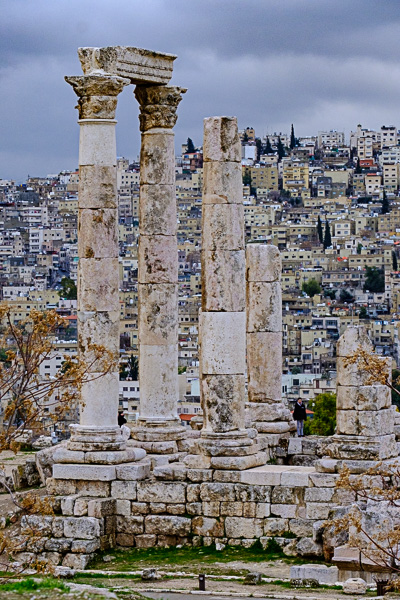



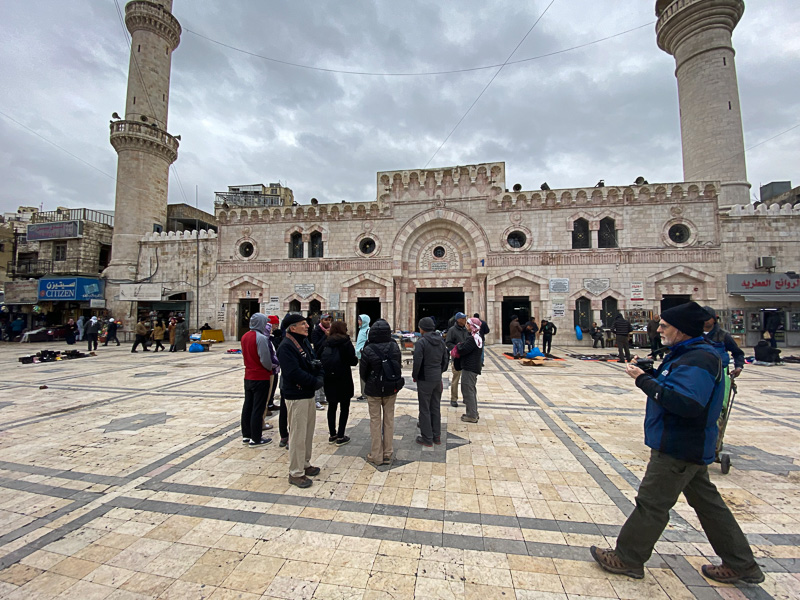

Thank you Jon for your Jordan postings. It has been fun watching you all on the trip extension. Looked great…and a bit cool! Great photos 👍
I’ll send you the link to my back porch webcam.
Safe travels home and hi to Judy.
Anny and Tom